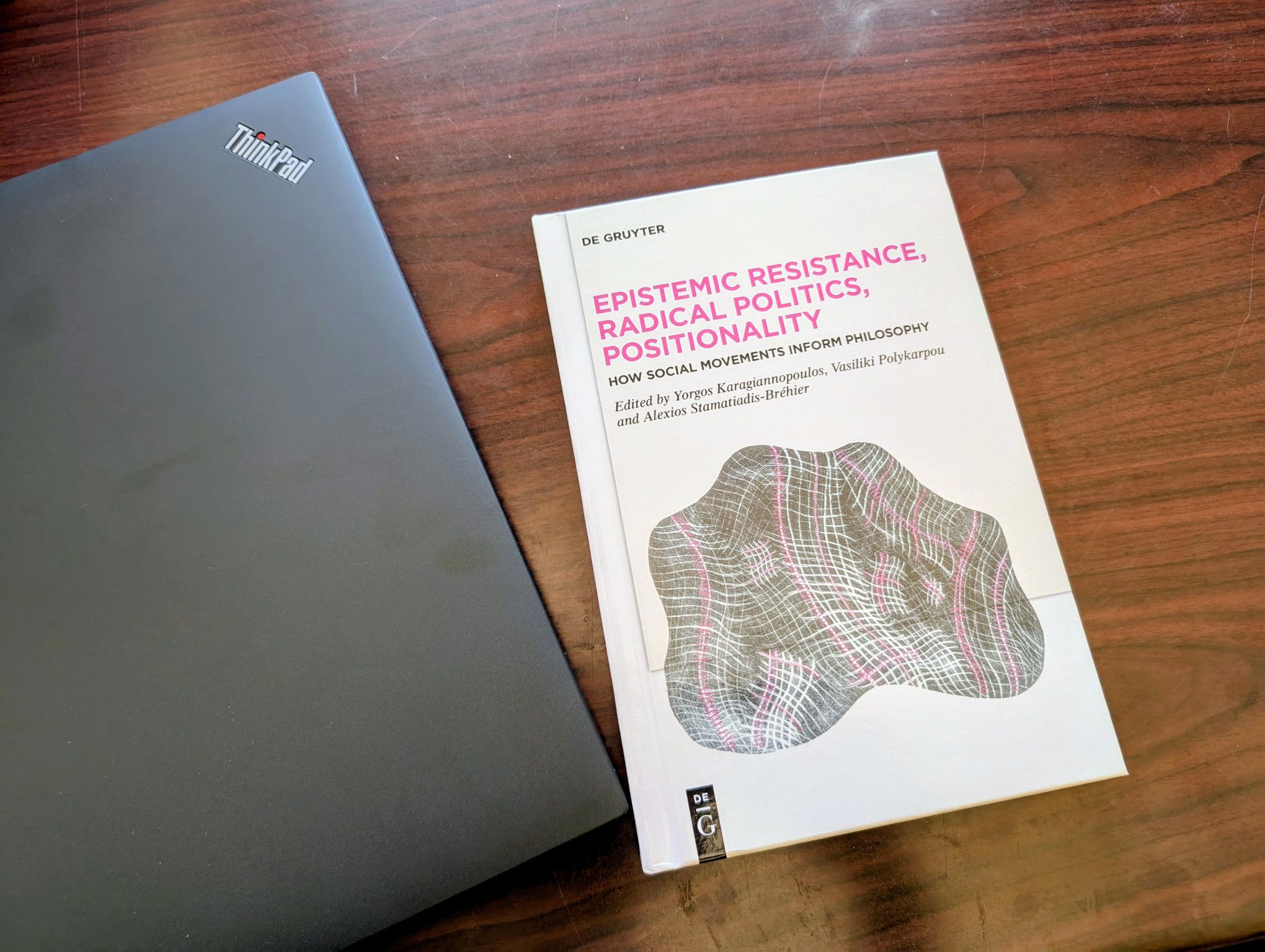Critical Social Ontology and Social Movements

I came home and found that this anthology (Karagiannopoulos, Polykarpou, and Stamatiadis-Bréhier (2025)) waiting for me! I had written a chapter for this anthology and, you know how anthologies are, so I assumed it would take forever for it to actually get published. (For reference: I was commissioned to write chapters for books in 2019 that have only recently come out now.) This anthology took a relatively short amount of time, and the process was pleasant.
The anthology is called Epistemic Resistance, Radical Politics, Positionality: How Social Movements Inform Philosophy, edited by Yorgos Karagiannopoulos, Vasiliki Polykarpou and Alexios Stamatiadis-Bréhier. Here is the description of the anthology:
What can philosophy learn from social movements? In this volume, authors from various philosophical paradigms and disciplines (sociology, history) highlight the unique theoretical and political importance of social movements, bridging the abstract realm of philosophy with the concrete realm of social reality. Among the movements explored are the Climate Justice movement, the Disabled People’s Movement, and the Chinese anti-lockdown protests.
You can buy it here, though it is understandably pricey for individuals. I suggest recommending that your library order it.
My chapter (Richardson (2025)) is called: “Critical Social Ontology and Social Movements.” Here is an excerpt from the introduction:
Critical social ontology is an exciting development for philosophers who want to connect their scholarship with political activism and social movements. Abstractly conceived, critical social ontology is political activism, and this activism can be located within a social movement. For example, doing feminist metaphysics is an act of activism, one that falls under the broad feminist social movement that is ongoing today.
In the abstract, this makes sense. In the concrete, however, it is unclear how to understand the relationships among critical social ontology, political activism, and social movements. How, exactly, is a journal article written in paywalled specialist journal going to help political movements? Specifically, how will an article about metaphysics—which will necessarily be somewhat abstract—advance political projects? These questions often lead to skepticism about the possibility of doing critical social ontology in a way that makes a concrete difference to social movements.
The goal of this paper is to reframe how we think about the practical efficacy of critical social ontology (and critical social philosophy, more generally). When we think of ourselves as isolated critical social ontologists who exist outside of a social movement or organizing group, we rightly conclude that our work will fail to make a difference. However, when we think of ourselves as part of collective, as participants in a social movement, then we will find that our work can meaningfully impact social movements. I recommend that we act in what Raimo Tuomela calls the we-mode of acting and thinking. The we-mode, I argue, is characteristic of those who take themselves to be acting within a social movement.
Basically, the paper is about the relationship between critical social ontology and social movements, explaining how critical social ontologists can be in solidarity with such movements. I highly recommend reading this paper if you are interested in scholarship as activism.
The pre-print is here.